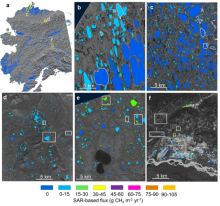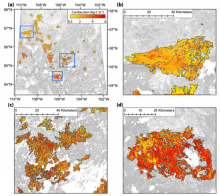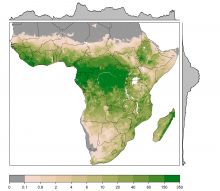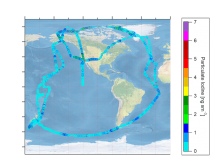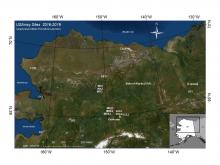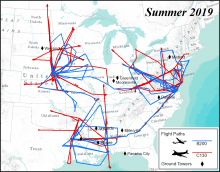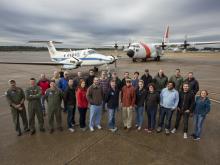Synthetic Aperture Radar (SAR) was used to estimate methane ebullition flux for thousands of lakes in five regions across Alaska.
Landscape-Scale Estimates of Methane Ebullition from Lakes
SAR-based lake ebullition maps. Panel a shows Alaska study regions with SAR footprints outlined in yellow. Subsequent panels show SAR-based CH4 ebullition maps for b) Barrow Peninsula, c) Atqasuk, d) Toolik, e) northern Seward Peninsula, and f) Fairbanks. Study lakes with field-based measurements are outlined (b,c) or boxed (d,e,f) in white. Orange boxes in panel f indicate anthropogenic study lakes.

